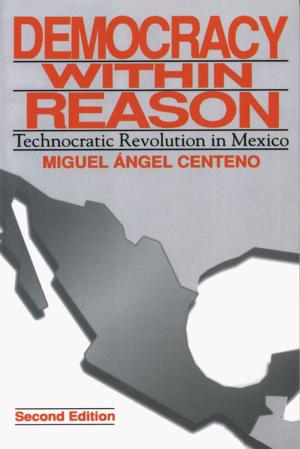The Native Conquistador
Alva Ixtlilxochitl’s Account of the Conquest of New Spain
Nonfiction, History, Americas, Mexico, Modern| Author: | ISBN: | 9780271072043 | |
| Publisher: | Penn State University Press | Publication: | June 16, 2015 |
| Imprint: | Penn State University Press | Language: | English |
| Author: | |
| ISBN: | 9780271072043 |
| Publisher: | Penn State University Press |
| Publication: | June 16, 2015 |
| Imprint: | Penn State University Press |
| Language: | English |
For many years, scholars of the conquest worked to shift focus away from the Spanish perspective and bring attention to the often-ignored voices and viewpoints of the Indians. But recent work that highlights the “Indian conquistadors” has forced scholars to reexamine the simple categories of conqueror and subject and to acknowledge the seemingly contradictory roles assumed by native peoples who chose to fight alongside the Spaniards against other native groups. The Native Conquistador*—*a translation of the “Thirteenth Relation,” written by don Fernando de Alva Ixtlilxochitl in the early seventeenth century—narrates the conquest of Mexico from Hernando Cortés’s arrival in 1519 through his expedition into Central America in 1524. The protagonist of the story, however, is not the Spanish conquistador but Alva Ixtlilxochitl’s great-great-grandfather, the native prince Ixtlilxochitl of Tetzcoco. This account reveals the complex political dynamics that motivated Ixtlilxochitl’s decisive alliance with Cortés. Moreover, the dynamic plotline, propelled by the feats of Prince Ixtlilxochitl, has made this a compelling story for centuries—and one that will captivate students and scholars today.
For many years, scholars of the conquest worked to shift focus away from the Spanish perspective and bring attention to the often-ignored voices and viewpoints of the Indians. But recent work that highlights the “Indian conquistadors” has forced scholars to reexamine the simple categories of conqueror and subject and to acknowledge the seemingly contradictory roles assumed by native peoples who chose to fight alongside the Spaniards against other native groups. The Native Conquistador*—*a translation of the “Thirteenth Relation,” written by don Fernando de Alva Ixtlilxochitl in the early seventeenth century—narrates the conquest of Mexico from Hernando Cortés’s arrival in 1519 through his expedition into Central America in 1524. The protagonist of the story, however, is not the Spanish conquistador but Alva Ixtlilxochitl’s great-great-grandfather, the native prince Ixtlilxochitl of Tetzcoco. This account reveals the complex political dynamics that motivated Ixtlilxochitl’s decisive alliance with Cortés. Moreover, the dynamic plotline, propelled by the feats of Prince Ixtlilxochitl, has made this a compelling story for centuries—and one that will captivate students and scholars today.















